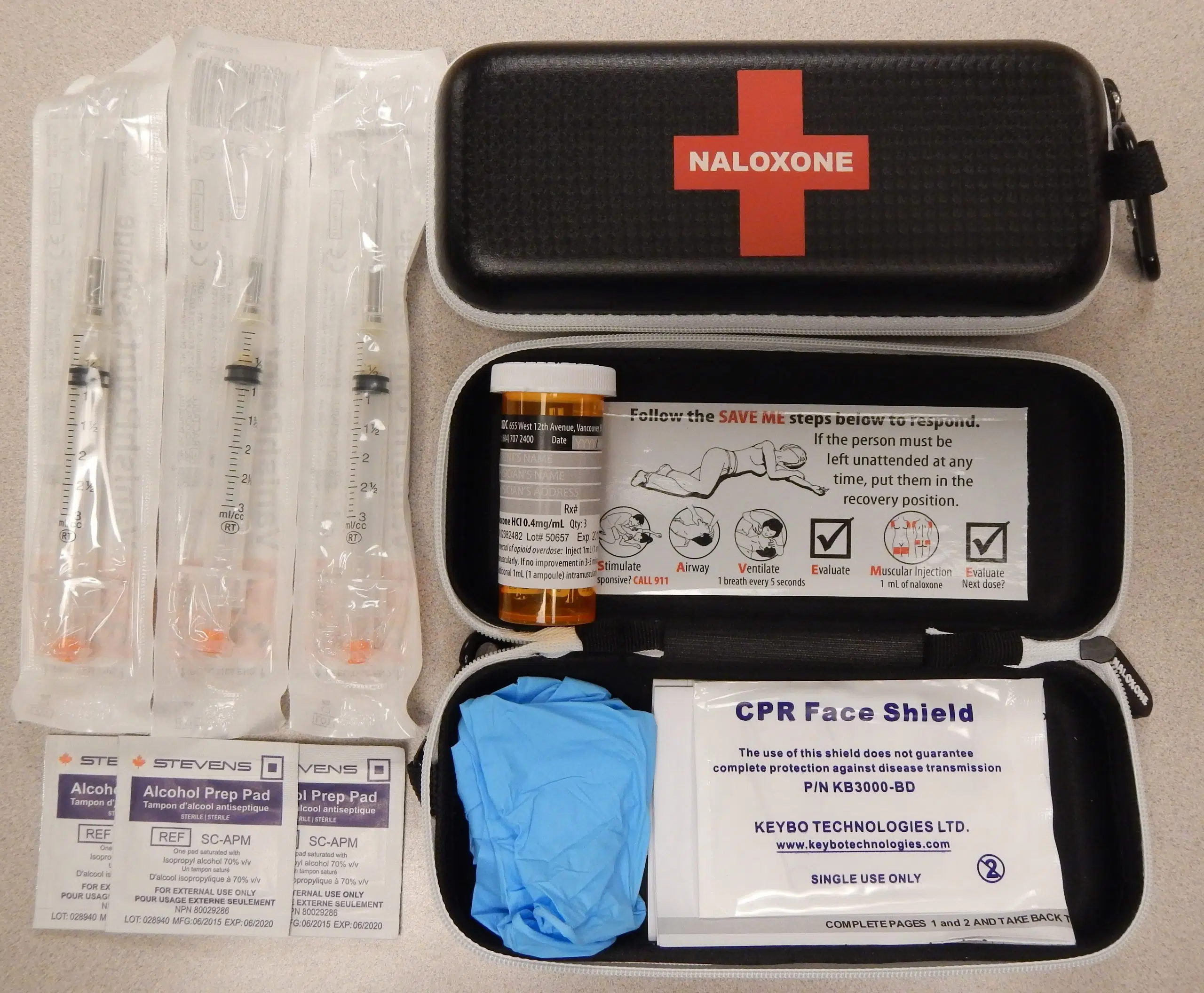
A veteran paramedic says every second counts when it comes trying to save a life during an overdose call.
Brian Twaites with BC Emergency Health Services says brain cells start to die in just four to six minutes when someone is overdosing.
“First, we need to understand that the narcotics in this case, being fentanyl, is what’s causing people to die,” he said .”It’s a depressant. If they have an overdose, they have an abrupt loss of conscientiousness. They collapse, and because of the depressant on the nervous system, they stop breathing.”
“When we first approach overdose patients, they actually appear to be clinically dead. Their skin is blue, and that’s from cyanosis, which is caused by hypoxia, which is the lack of oxygen in the body because they’re not breathing for themselves.”
Twaites says naloxone reverses those effects and allows people to start breathing again. With fentanyl though, he says, up to five times more naloxone is needed to reverse an overdose compared to other drugs like heroin.
“Unlike other recreational narcotics, such as heroin, fentanyl is a synthetic narcotic. So it binds to the cell, and it takes much more NarCan than we usually use to reverse an overdose,” he added. “We’re finding that we’re now having to give up to five times the regular dosing of NarCan to get these people to just breathe on their own.”
A total of 1,011 British Columbians have lost their life to an overdose in the first half of this year.
His comments came at a time when the BC Coroners Service reported that 1,011 people died of a suspect drug overdose in the first six months of the year, the highest ever on record.
In Kamloops, there have been 32 such deaths this year, after a record 60 people in the city lost their lives to an overdose in 2020.
Fentanyl was detected in 85 per cent of drug toxicity deaths in the first six months of 2021, with cocaine and methamphetamine also present in a significant number of deaths.
“Drug toxicity is now the leading cause of death in this province for those aged 19 to 39 with an average age of death of 44 years,” BC’s Chief Coroner, Lisa Lapointe, said. “In terms of total potential years of lives lost, across the entire population of B.C., drug toxicity comes second only to malignant cancers.”
















